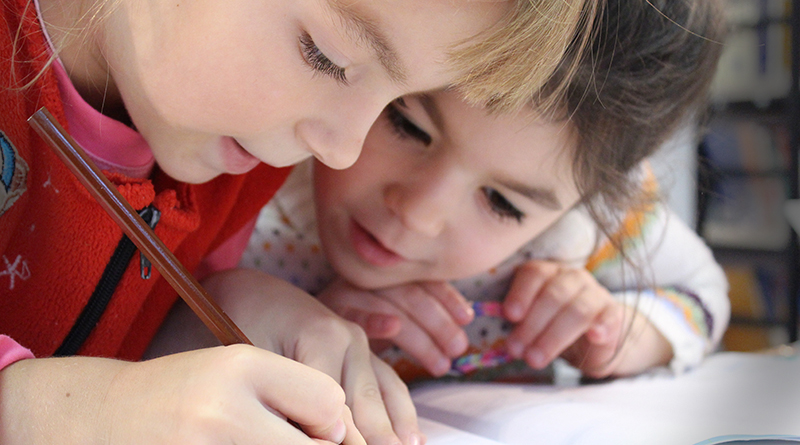
5 Tools for a College Student with ADHD
By Ali Idriss
My Journey with ADHD
My hyperactivity, impulsivity and inattention were a major problem in the classroom as a young kid. It all started at the age of six. I would always get out of my seat in the middle of class, distract my classmates, get out of line on the way to class, and the list goes on… My behavior led to many consequences, such as many timeouts, when I just wanted to have fun and didn’t mean any harm. My parents and teachers noticed my behavioral issues. They recommended I get checked up. I was eventually tested and diagnosed with ADHD at the age of seven. I then went through months of therapy, took multiple types of medication, and learned a lot about ADHD throughout my life. And here I am, 14 years later. I’m A 4th year college student at Florida Atlantic University, seeking a biology degree, with a goal of becoming a physician one day.
Being a college student with ADHD:
You might be wondering, “How come a student with ADHD struggles in school?”. Attention-deficit/Hyperactivity disorder (ADHD), is a neurobehavioral disorder that causes inattention, impulsiveness, and hyperactivity in whoever has it. Other symptoms are poor time management, organization, and prioritization skills. It also causes difficulty in completing and focusing on tasks, multitasking, and, of course, the difficulties in dealing with stresses. All these symptoms cause crucial problems for a student trying to accomplish their goals and get an education.
And I bet you’re asking yourself, “Don’t many people deal with these types of troubles?” The answer is yes, but you see, with ADHD, all of these symptoms are on steroids. All these difficulties are amped up and cause a lot more mayhem than they would for the neurotypical. For example, say it would take the neurotypical three hours to study for an exam. However, those like me with ADHD might need four or five hours. If you’ve got a project due at midnight and want to finish it ahead of time, having ADHD might cause you to turn it in five minutes before the due date. Those are just two of many examples of how ADHD can affect you in school. Because of my experiences with ADHD in school, I learned some valuable lessons and I’ve developed a handful of tools and tips I want to share with college students out there struggling to create a routine, having trouble focusing on their studies, or even having trouble remembering they have class.
So, let’s get into the handful of tools I got for a college student like myself who is dealing with the mayhem that ADHD comes with…
#1 – Keeping your school semester organized:
Preparing for your semester ahead of time is very beneficial in staying organized and prioritized. This means creating a schedule with homework/essay due dates, exam dates, professor office hours, and supplemental instruction (SI) sessions, tutoring hours, etc. For those who don’t know about SI sessions, they are sessions that are provided by the university to go over what’s learned in class by a teacher’s assistant.
Updating your calendar every week is key. Every professor has a syllabus/schedule which has everything you need to create your calendar. I used to use physical white board calendars, but eventually, I switched to large desk calendars because of its benefit of planning more months into the future. I could also look back at past dates if I needed to. These are all physical calendars that I just hang up on my bedroom wall. I also use electronic calendars, the notes application on my phone, and reminders.
One source of organization is never enough for my ADHD. I need a secondary source, a third source, and maybe even a fourth source sometimes. That’s why I also use flashcards to stay organized. Every night I grab a flashcard out of my flashcard pile and write down my to-do list for the next day. I then keep it in pocket throughout that day, as I progressively cross off what I have done. A little motivation booster I use with my flashcards is a restaurant check spindle. A restaurant check spindle is the metal rod that restaurants use to stab and collect checks. At the end of each day I stab my flashcard on the spindle and see my progress grow day by day. It motivates me to do more! I guess you can call it my spindle of accomplishments.
All these tools help me know what’s coming in the future. They help me prioritize and organize ahead of time. Organization also releases lots of stress and anxiety. Having ADHD means you need a clearer vision of what’s coming in the future. You eventually become obsessed with all these little organization habits at one point in time after getting used to them.
#2 – Adding more to your daily schedule to build structure:
I brought up supplemental instruction, tutoring sessions, and professor office hours earlier. These are so important for my daily structure. What I’ve realized is that having no due date or an empty schedule encourages my ADHD to take over with wandering thoughts and procrastination. Having more reserved time slots helps me stay moving and to be productive. So, these SI sessions, tutoring sessions, and professor office hours are all great to take advantage of and attend. They create instances like, “Oh no, I have my SI session in two hours. Let me finish my homework before the session begins”. These instances are better than having nothing on your schedule.
#3 – Having Relationships with Others at School:
Some schools have tutor/SI sessions for larger and more rigorous classes such as organic chemistry I & II. These SI sessions consist of a significantly small percentage of students from the class, because unfortunately, not many people can make it to these classes or even want to take advantage of them.
And the fact that they consist of a smaller group of students means I can ask questions at ease compared to the larger online lectures consisting of 300 students with a professor who has a tight schedule.
I also created relationships with others in my classes because these sessions are much more intimate than the larger online lecture classes. If your university doesn’t have SI sessions it doesn’t mean you can’t create these relationships in class as well. Many of the relationships I’ve formed aren’t only from SI sessions, but from large lectures. Introducing yourself to someone you see in your lecture via email never hurts. So, I contact others online and these relationships led to mutual relationships. Utilizing these your connections in class is so important. With time, I created study groups with the relationships I developed.
Study groups are significant for my studies because there are many brains working together to solve problem after problem and hunt down concept after concept. I teach my classmates what they’ve missed or can’t comprehend, and they teach me too. Once we figured it out, we’d go over it once again as a group. Even during the pandemic this is all possible over Zoom, Skype, or any other video/voice chat software.
With my ADHD, it’s crucial to think of ways for me to look forward to studying. In my case, it’s creating a study group and being social with what I learn. This really helps spice things up and make the studying experience enjoyable.
#4 – Create a distraction free zone when studying:
Make a list of things that you know will distract you when you are studying alone. In my case it would be my phone, loud noises, or a busy hallway with hundreds of students walking by. I need a study zone that has minimal distractions, due to the inattention that comes with my ADHD. While I study, I make sure that my phone stays on “Do Not Disturb”, meaning that it does not go off at all. This prevents me from going into a huge wormhole of distraction. That’s why the “Do Not Disturb” feature is a lifesaver. And don’t be afraid to let your friends know that you can’t text or speak to them as you are studying.
You don’t want distracting bookmarks or websites opened on the computer you use to study, such as Twitter, Instagram, YouTube, or whatever distracts you. You want to have all your study tools on you, whether it’s a laptop charger, an outlet, eraser, protractor, extra pencils, pens, paper, snacks, or water. Having everything on you makes your studying experience much easier, because then you don’t need to be missing anything which causes you to lose your focus.
Choose a comfortable and relaxing location to study as well. At Florida Atlantic University, they have complimentary study rooms that you can reserve for a few hours in the library. Those are usually my first option, as they are so quiet and distraction free. If those are all taken up, I find another spot in the library. You need to create a study environment for yourself that puts you in tunnel vision when studying.
#5 – Listening to music when studying:
Listening to music while studying works great for me as well. For some, music could be distracting, but that’s why I play calming music without lyrics such as Lo-Fi music, classical music, or even orchestral music. This method of studying is very soothing and helps the studying process become much more enjoyable. A great way to find what music works best for you is to go on Apple Music, Spotify, YouTube or whatever music streaming service you use and look up “Study Music” or “Lo-Fi Study Music”, and see what playlists come up. As a matter a fact, I’m listening to a playlist called “LoFi Chill Hop Study Beats” as I’m typing this. It’s a daily updated playlist that consists of some really great and relaxing study music.
For many of us, college isn’t a walk in the park, and having ADHD doesn’t make it any easier. You can turn your ADHD into a superpower once you apply the right tools to your college life. For more tools like these, tune in to our social media series, ADHD Power Tools, which you can find on Instagram, Twitter, YouTube, and our website! In this series, the hosts are Brooke Schnittman, MA, ACC, BCC, and I. We discuss ADHD and the tools to help you unlock the power within, in our weekly Wednesday episodes! Now tell us what tools you use by hopping on our social media pages and sharing your story with us!

Ali Idriss is a Different Brains intern and ADHD self-advocate. He aspires to share his journey and help others with the tools that have allowed him to overcome many of the challenges along the way, as he co-hosts ADHD Power Tools and conducts research on college students with ADHD. Ali has completed his bachelor’s in Biological Sciences at Florida Atlantic University and is currently completing his second bachelor’s in Neuroscience and Behavior at Florida Atlantic University. He is also an Emergency Medical Technician and is aspiring to become a physician.




